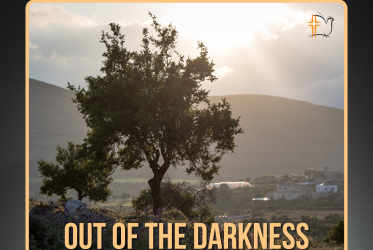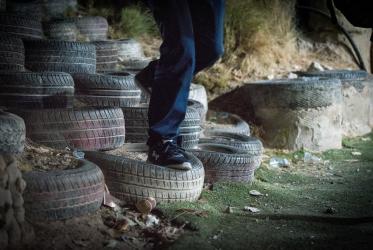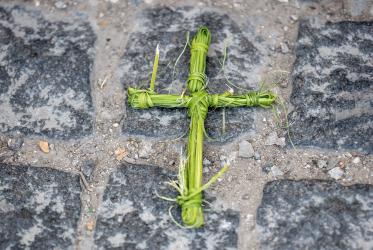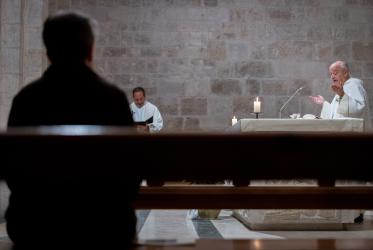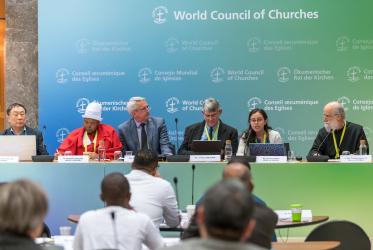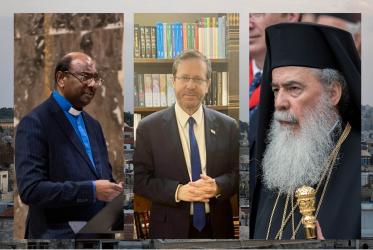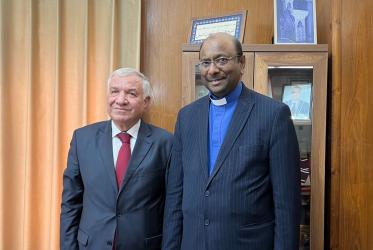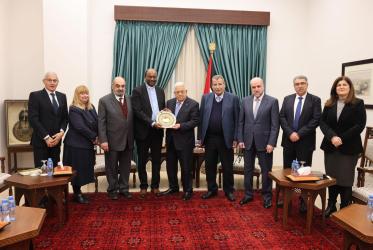Displaying 1 - 20 of 811
WCC condemns killing of aid workers in Gaza
03 April 2024
Easter prayers – by Rev. Meghan Johnston Aelabouni
21 March 2024
Words of steadfastness ring from the rubble
21 March 2024
An Easter prayer – by Mgr William Shomali
14 March 2024
An Easter prayer – by Mgr William Shomali
14 March 2024
An Easter prayer – by Mgr William Shomali
14 March 2024



